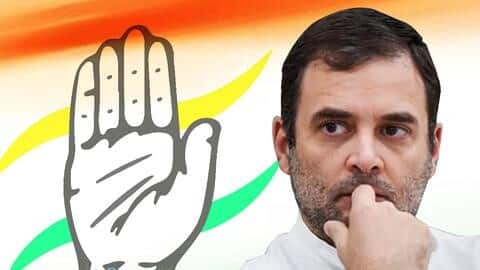
New breed of monopolists deciding what you read, watch: Rahul
What's the story
Congress leader Rahul Gandhi has alleged that a "new breed of monopolists" has taken control of India's governing institutions and regulators. Writing in an editorial for The Indian Express, he alleged that these groups have decimated several businesses and prevented job creation. He compared the fear instilled by these monopolists to that of the erstwhile East India Company.
Ongoing criticism
Gandhi criticizes government's 'monopoly model'
Gandhi's comments are in line with his continued attack on the Bharatiya Janata Party's "monopoly model." He has accused Prime Minister Narendra Modi's government of hurting micro, small, and medium enterprises (MSMEs) and causing job losses. "The original East India Company wound up over 150 years ago, but the raw fear it then generated is back," he said.
Information control
'Monopolists control what Indians read, watch'
Gandhi said many of India's business leaders are scared of these monopolists. He stressed that "Bharat Mata is mother to all her children," condemning the monopolization of resources for a few. The Congress MP said competing with these monopolists is like "fighting the machinery of the Indian state." He claimed their strength is in controlling institutions and surveillance, not products or ideas.
Positive examples
Gandhi acknowledges rule-abiding homegrown companies
Despite his criticisms, Gandhi did acknowledge a few homegrown companies like Mahindra and Zomato that innovate while following the rules. He argued against the government supporting select businesses at the cost of others. "The government cannot be allowed to support one business at the expense of all others, much less support benami equations in the business system," he said.
Societal outcome
Monopolists are not 'evil individuals': Gandhi
Gandhi ended by saying these monopolists aren't "evil individuals," but a product of social and political failure. He said they have accumulated colossal wealth, worsening inequality in India. "Unlike you, these groups decide what Indians read and watch, they influence how Indians think and what they speak. Today, market forces do not determine success, power relations do," he added.